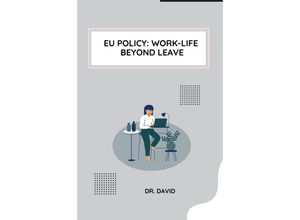The European Union (EU) actively promotes a healthy balance between work and personal life for
its citizens. A key piece of legislation in achieving this is the Work-Life Balance Directive
adopted in 2019. This directive sets minimum standards across EU member states to ensure
workers particularly parents and carers have the support they need.One crucial aspect is the
right to family leave. This includes minimum periods of paid parental leave encouraging
fathers to take a more active role in childcare and leave for caring for other dependents. The
directive also mandates that member states establish a framework for flexible working
arrangements. This allows employees to adjust their work hours or patterns to better manage
their responsibilities outside of work.Ultimately the EU Directive aims to achieve two key
goals. Firstly it promotes a better work-life balance for individuals leading to increased
well-being and potentially higher productivity. Secondly by supporting parents and carers the
directive works towards greater equality in the workplace. By ensuring both men and women have
access to these supports it challenges traditional gender roles and fosters a more level
playing field for career advancement.

